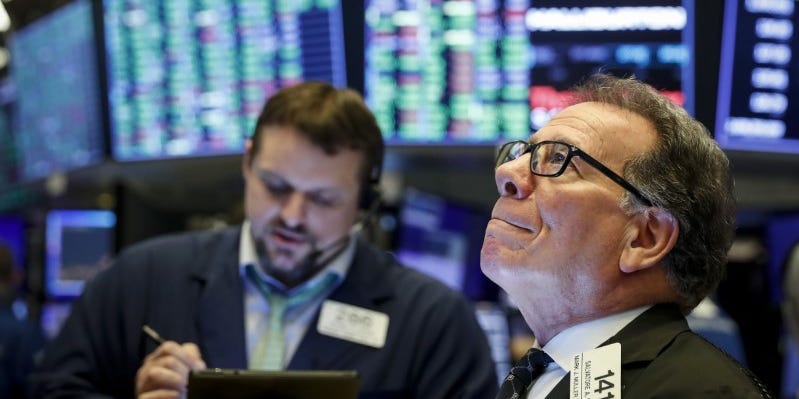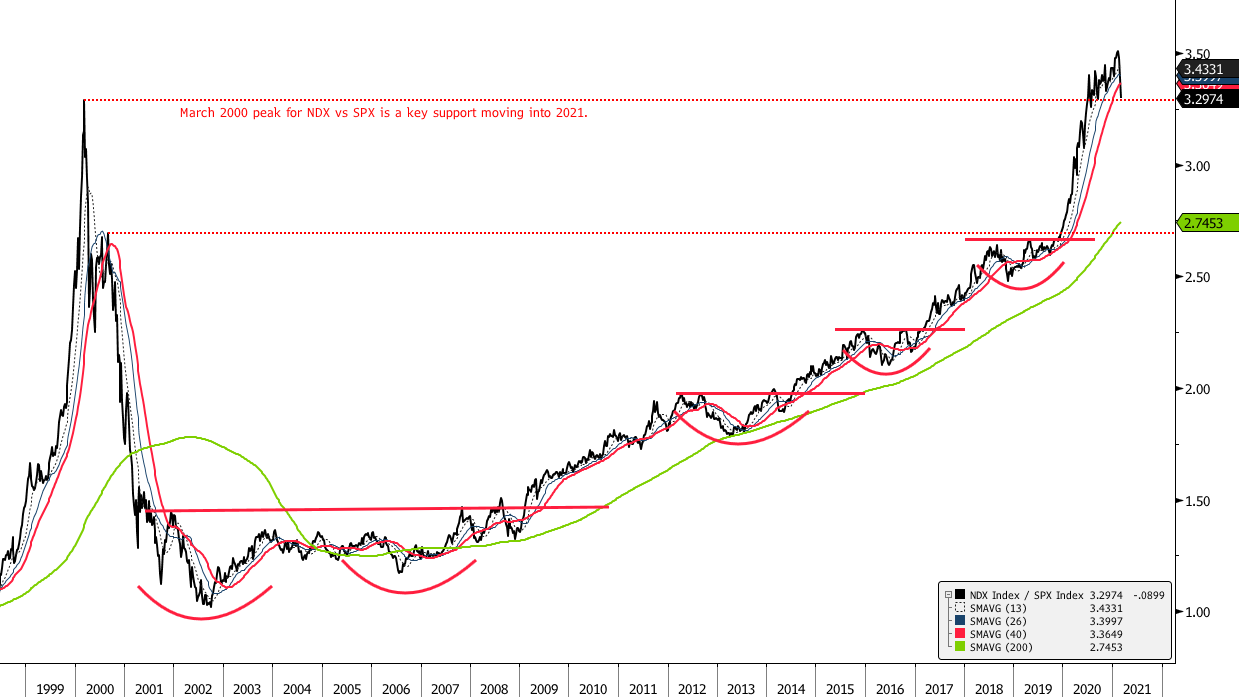
- The recent weakness in the stock market represents a rotational correction rather than a big top, Bank of America said in a note on Tuesday.
- The NYSE advance-decline line remains near record highs, indicating that underlying market breadth is strong.
- "We believe that rotation is the lifeblood of a bull market," Bank of America said.
- Sign up here for our daily newsletter, 10 Things Before the Opening Bell.
A correction in technology stocks over the past month represents a rotational correction rather than a big top in the stock market, Bank of America said in a note on Monday.
The bank is taking its cues from the New York Stock Exchange advance-decline line, which remains near record highs. The advance-decline line measures the difference of stocks that are moving higher or lower on a daily basis.
Near record highs, the NYSE A/D line indicates that underlying market breadth is strong. In other words, a broad swath of the market is performing well despite the sell-off in mega-cap technology names over the past month, which have been responsible for a bulk of the gains in the stock market over the past few years.
Other indications of strong market participation include an improvement in the percentage of S&P 500 stocks above their 10-day moving averages even as the market fell on Monday, and the strongest reading in the percentage of NYSE stocks at 52-week highs since March 2020.
"These solid breadth indicators suggest that market rotation is alive and well as US equities have corrected/consolidated lower from mid-February," BofA said.
The rotation accelerated over the past month following a spike in interest rates, with investors selling out of technology stocks to buy cyclical stocks that are poised to benefit from a reopening of the economy.
"We believe that rotation is the lifeblood of a bull market," Bank of America said.
But there are risks that could turn the recent rotational correction into a bearish breakdown for stocks, BofA highlighted.
The outperformance of the Nasdaq 100 relative to the S&P 500 is currently testing big support at the prior high from the 2000 tech bubble. "A decisive loss of this support [would] confirm a more sustainable loss of leadership, or bearish rotation, for the Nasdaq," BofA said.
Additionally, a break below support in the high-yield and corporate bond indexes is a potential bearish leading indicator for the stock market, BofA said.
"This increases the risk for a deeper corrective phase on the S&P 500 with supports in the 3,714/3,700 to 3,647 range as well as at the prior highs from September and October," BofA said.
